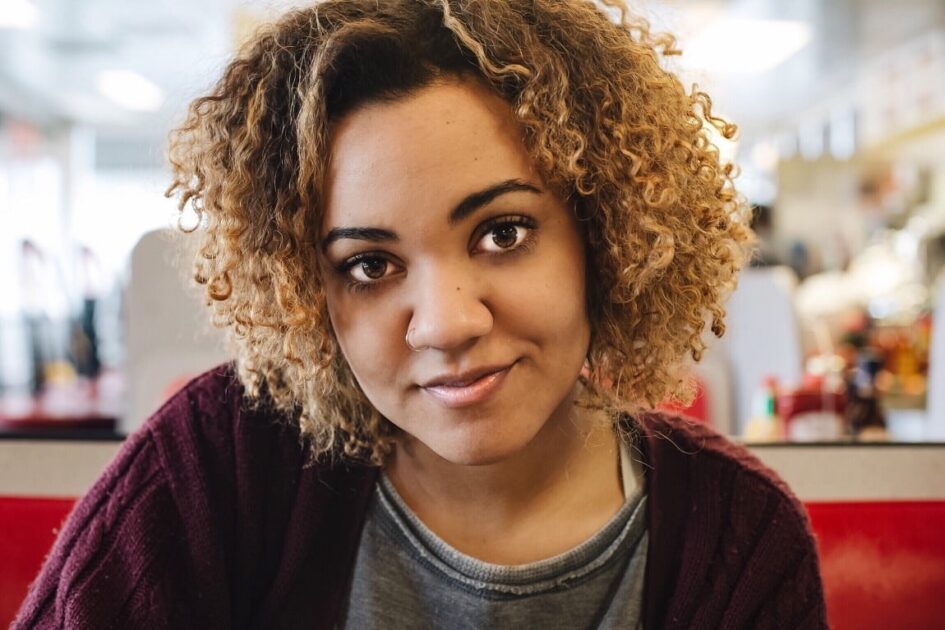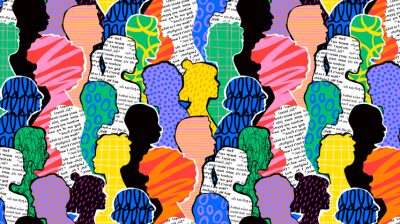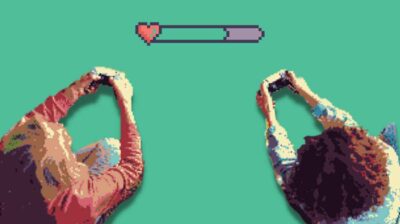Mental health advice from Black Therapists Ireland
SpunOut.ie volunteer Rebecca Adeyemo interviews psychotherapist Ejiro Ogbevoen about mental health for ethnic minorities

SpunOut.ie Action Panel member Rebecca Adeyemo interviewed psychotherapist and founder of Black Therapists Ireland Ejiro Ogbevoen about taking care of your mental health as a person from an ethnic minority background living in Ireland.
Supporting your mental health as a young Black person in Ireland
Signs you may need mental health support
Rebecca: What are some signs to look out for that may suggest a young person needs to seek help for their mental health?
Ejiro:
If you don’t feel good, you do not feel good and it doesn’t matter what the reason is. That is the first sign that something is wrong. You know, if you go to school and it feels too much. If everything feels like a struggle, then something is not right. When you begin to sleep too much or seclude yourself because you want to avoid things and you cut out your friends because it feels like an effort having to deal with people. When you slowly begin to step away from the world because it’s too much of a hassle, then you need help.
Stepping away from the world, not wanting to interact or engage with people, staying in bed all day, finding comfort in food or not eating at all. A sense of everything being too much is a sign. And, you know it on the inside, even if nobody can see it, but these begin to reflect on what people or friends see on the outside. Changes in your behaviour such as “you don’t talk or you don’t call anymore”, you don’t want to go out with your friends anymore. We can see all these signs, but at this point, it’s gone too far, to be honest. If you’re beginning to feel unwell or if you don’t feel good, speak to somebody.
Supporting your mental health as an ethnic minority
Rebecca: What are some healthy ways of dealing with your mental health as a young person from a minority ethnic background?
Ejiro:
As a young person of colour or from an ethnic minority background, it’s really the same with every young person. The activities you’re involved in, your lived experience or cultural background may be different, but what you want at the end of the day is to feel good no matter where you are from. You want to feel good. You want to be able to live your best life. You want to be able to express yourself the way you want to express yourself.
Now, what will support you to do that as a young person from an ethnic minority group? We may not have, I don’t want to say – we don’t have – the resources because they are there. The issue is that these resources are not set up to cater for young people with diverse ethnic background. Maybe at the moment we are just not as represented as we would like to be, but then it is for us to show up.
There are so many organisations like BeLonGTo, Aware, SpunOut.ie and other mental health support groups that are out there. At the moment they may not be providing adequate support for the minority, not because they don’t want to. It is because they are not seeing the needs of minority people in their group as different to theirs. They don’t know what the minority people need. So we as people of colour who are ethnically diverse need to step up. We need to go and make ourselves heard and get involved so that we can be supported.
As a young person from a minority group one of the healthy ways of looking after your mental health is by focusing on some of the things you enjoy doing; especially given the current climate. That is where you start from. Do you enjoy painting, drawing? Do you enjoy football or music, who helps you enjoy your football or music more? You want to be around those people. Do you miss meeting with these friends at the moment? The environment may be different, but it doesn’t stop you from communicating with friends and having your chats. That is the beauty of technology and it is very important in the current climate.
It is the things that excite you; the things that make you happy. That is how you cope with keeping your mental health in the best way, being good, being well is what mental health is about. It means you are free enough to do the things that you enjoy doing. Take out everything that is an obstacle. Then you’re there taking care of your mental health.
Mental health support for black people in Ireland
Rebecca: Are there any mental health supports for black people in Ireland?
Ejiro:
At the moment there is nothing specific to black people. Recently, I started Black Therapists Ireland which is bringing black therapists together to make it available for culturally diverse people who seek mental health support from black therapists. And we’re doing this not because we want to only work with black people. We’re doing this, because we know that there are many people out there who feel they want to talk to black therapists, to therapists who understand their cultural background, and we want to make it easy for people to find such therapists.
This is the beginning of something that is exclusive to people of colour and those from ethnic minority background when it comes to the mental health arena in Ireland. There will be more things like this coming up in the future where it is black minority or ethnic focused. Where we will be working with already existing organisations to make it easy for black people to access all these existing mental health support services that are already in Ireland.
I suppose we just need to know that we are part of the community and not feel excluded by excluding ourselves. I think we need to champion that aspect and that is what Black Therapists Ireland is about in the mental health space. It’s about championing the need for those who feel their issues are not adequately understood by therapists from a different cultural background. We are here, we are available to you, come speak to us. What would you like? How can we support you?
There is nothing specific to the black community except the Black Therapist Ireland directory where you will find black and culturally diverse therapists to work with.
Techniques for dealing with anxiety
Rebecca: Are there any techniques you’d recommend on dealing with anxiety?
Ejiro:
Yes. I love this very simple technique that I use with my clients. It is so simple, but very powerful. Anxiety is like a disturbed or shaken snow globe. That is how anxiety is experienced.
When you disturb or shake a snow globe, inside the globe becomes cloudy, unsettled and disorganised. That is what anxiety does to our mind. We are filled with a sense of being so shaky, cloudy and unsettled. As a result, anything that helps us stay in place, anything that helps support you to steady yourself, works when it comes to anxiety.
It is, however, different for each of us. It could be going for a run, writing, playing computer games, etc. Whatever activity you are partaking in, be conscious about how you are feeling. It is not about going into the game, it is about noticing how you are feeling, and then ground yourself in that space.
An exercise that I practice myself and with my clients is to draw a circle around yourself when you are feeling anxious. An imaginary circle. With you in the middle of that circle, now, take out everybody one after the other. Take the family out, your friends, your teachers, your dog, your cats, your pet snake. Take everything out and until it’s just you left in the circle. Then take a few deep breaths, feel your lungs as much as you can and as you release the air from your lungs just relax and ground yourself in that space. Focus on your breathing.
When we don’t have all these things around us, in most cases, we’re able to find our calm. And once you can find your calm often enough, you tend to spend more time in this space, feeling steady and you just go about life. It’s not that we are not going to shake, the snow globe will sometimes be disturbed or moved but when that happens we are not going to be shaking so much that we can’t get out of bed. We are able to ground ourselves and find our calm.
It is a very simple exercise. I call it the circle exercise. It’s about grounding yourself, taking a few deep breaths. Just steadying yourself, sometimes putting your hands on your chest and on your upper abdomen helps support you in your moment of anxiety so that it doesn’t spill over and maybe head towards a panic attack. In many cases anxiety can be managed by just grounding yourself.
Mental health support for ethnic minorities in Ireland
It can be hard to know where to start when it comes to looking for mental health support. For people from ethnic minority background in Ireland, it might feel more challenging finding someone who understands your experience. Whether you are looking for someone from a similar background to you, or you are just looking for a counsellor who will understand what you’re going through, there are services out there to help you. Read our article on Mental Health support for ethnic minorities in Ireland to find the right support for you.
Mental health supports you might be interested in:






